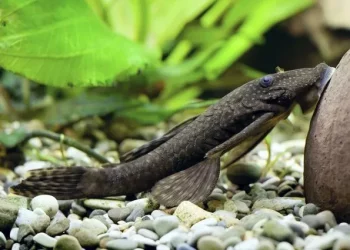Betta fish, scientifically known as Betta splendens, are one of the most popular freshwater aquarium fish among hobbyists due to their vibrant colors, unique fins, and relatively easy care requirements. However, a common question arises among new and experienced aquarists alike: Can betta fish live in tap water? This article explores the intricacies of keeping betta fish in tap water, including considerations regarding water quality, conditioning, and long-term care.
Understanding Betta Fish
Before diving into the specifics of water conditions, it’s crucial to understand the natural habitat and requirements of betta fish. Originating from Southeast Asia, particularly Thailand, these fish inhabit shallow waters such as rice paddies, swamps, and ponds. Their natural environment is characterized by:
Warm Temperatures: Betta fish thrive in temperatures between 75°F and 82°F (24°C to 28°C).
Soft Water: They prefer slightly acidic to neutral pH levels, ideally between 6.5 and 7.5.
Low Flow: Betta fish are not strong swimmers; they prefer calm waters.
Why Water Quality Matters
Water quality is vital for the health and well-being of all aquarium inhabitants, including betta fish. Poor water conditions can lead to stress, diseases, and even death. The primary factors affecting water quality include:
pH Levels: The acidity or alkalinity of the water can affect a fish’s ability to absorb oxygen and nutrients. Betta fish are sensitive to rapid changes in pH.
Hardness: The concentration of dissolved minerals (calcium and magnesium) can impact fish health and breeding. Bettas prefer soft to moderately hard water.
Temperature: Rapid temperature fluctuations can cause stress and illness. Maintaining a consistent temperature is crucial.
Ammonia, Nitrite, and Nitrate Levels: Toxic compounds can accumulate in uncycled aquariums, leading to serious health issues.
Chlorine and Chloramines: These chemicals are commonly found in municipal tap water and can be harmful to fish.
The Composition of Tap Water
Most municipal tap water is treated to make it safe for human consumption. However, this does not necessarily mean it is suitable for betta fish. Understanding the components of tap water is crucial for aquarium health.
1. Chlorine and Chloramines
Chlorine is commonly used to disinfect drinking water. While it is effective for humans, it is toxic to fish, including bettas. Many water treatment facilities also use chloramines, a compound of chlorine and ammonia, which can be even more harmful. Both chlorine and chloramines can cause gill damage and stress in fish, leading to respiratory issues.
2. pH Levels
The pH of tap water varies significantly depending on the source and location. It typically ranges from 6.5 to 8.5. While some bettas can tolerate a broader pH range, maintaining a stable pH within their preferred range is essential. Sudden shifts can cause stress and lead to health issues.
3. Hardness
Water hardness is determined by the concentration of minerals dissolved in the water. Soft water is generally preferred by bettas. If the water is too hard, it can lead to stress and affect their ability to breed.
4. Heavy Metals
Tap water can contain trace amounts of heavy metals like copper, lead, and zinc, which can be toxic to fish. These metals can enter the water supply from plumbing systems or local environmental conditions.
5. Temperature
Tap water can be significantly colder than the preferred temperature range for betta fish, especially if it comes from a cold supply line. A temperature shock can cause severe stress or even death.
Preparing Tap Water for Betta Fish
If you decide to use tap water for your betta fish, it is essential to treat and prepare it correctly. Here are some steps to ensure that tap water is safe and suitable for your fish:
1. Dechlorination
Using a water conditioner designed to neutralize chlorine and chloramines is essential. These conditioners will make the water safe for your bettas by converting harmful substances into less toxic forms. Look for products labeled as “dechlorinators” or “water conditioners.” Popular brands include Seachem Prime, API Tap Water Conditioner, and Tetra AquaSafe.
2. Testing Water Parameters
Invest in a quality water testing kit to monitor the pH, ammonia, nitrite, nitrate, and hardness levels. Testing your tap water before adding it to the aquarium will help you understand its current parameters and make any necessary adjustments.
3. Adjusting pH and Hardness
If your tap water’s pH or hardness levels are outside the preferred range for bettas, you can use commercial products to adjust them:
pH Adjusters: Products are available to either lower or raise pH levels. However, it’s crucial to make adjustments slowly to avoid shocking your fish.
Water Softening Agents: If your water is too hard, consider using products that can help lower hardness or using reverse osmosis (RO) water mixed with tap water.
4. Temperature Conditioning
Before adding tap water to your aquarium, ensure it is at the appropriate temperature. Use a thermometer to check the temperature and, if necessary, let the water sit out for a few hours to reach room temperature or use a heater to bring it to the desired level.
Setting Up a Betta Fish Tank
1. Tank Size and Environment
When setting up a tank for your betta fish, size matters. A minimum of 5 gallons is recommended to provide ample space for swimming and hiding. Bettas thrive in well-planted tanks with plenty of hiding spots, such as caves or dense foliage. Ensure that decorations are smooth and free of sharp edges to prevent fin damage.
2. Filtration
While bettas prefer calm waters, a filter is still essential to maintain water quality. Choose a filter with adjustable flow settings to prevent strong currents that can stress your betta. A sponge filter or a filter designed for smaller aquariums can be effective.
3. Heating
Betta fish are tropical species that require stable water temperatures. A quality aquarium heater is necessary to maintain the water temperature between 75°F and 82°F. Regularly check the temperature to ensure it remains stable.
4. Aquascaping
Create a natural environment for your betta fish by incorporating live or silk plants, driftwood, and hiding spots. Bettas enjoy exploring their surroundings and having places to retreat to when they feel stressed.
5. Regular Maintenance
Perform regular water changes (approximately 25% weekly) to keep the water clean and maintain healthy parameters. Use a gravel vacuum to remove debris and uneaten food during water changes.
Common Issues with Tap Water
Using tap water for betta fish can lead to various problems if not properly treated. Here are some common issues and their solutions:
1. Chlorine Poisoning
If tap water is added directly without treatment, it can lead to chlorine poisoning. Symptoms include gasping at the water surface, lethargy, and red or inflamed gills. To prevent this, always dechlorinate water before adding it to the tank.
2. pH Fluctuations
Rapid changes in pH can cause stress and health problems. Test your water regularly and make adjustments slowly. Aim for gradual changes of no more than 0.2 pH units per day.
3. High Ammonia Levels
Ammonia can accumulate quickly in uncycled tanks. Monitor ammonia levels regularly and perform partial water changes as needed. Establishing a beneficial bacteria colony through proper cycling will help manage ammonia levels.
4. Hardness Issues
If the water is too hard, consider using RO water mixed with tap water to create a more suitable environment for your betta fish.
5. Temperature Shock
Always allow tap water to reach the appropriate temperature before introducing it to the tank. Sudden changes can shock your betta, leading to health issues.
Special Considerations for Betta Fish
1. Quarantine New Fish
When introducing new bettas or other fish to your aquarium, it’s essential to quarantine them for at least two weeks. This process helps prevent the spread of diseases and parasites. Use a separate tank with treated tap water during this period.
2. Monitor Fish Behavior
Regularly observe your betta’s behavior. Signs of stress include hiding, lethargy, and aggressive behavior. If you notice any changes, investigate potential causes, such as water quality issues or incompatible tankmates.
3. Feed a Balanced Diet
A healthy diet is crucial for the well-being of your betta fish. Feed high-quality pellets specifically formulated for bettas, along with occasional treats such as frozen or live foods (e.g., brine shrimp, bloodworms).
4. Limit Tankmates
While bettas can coexist with certain fish species, caution is needed. Avoid keeping them with fin-nippers or overly aggressive species. Suitable tankmates include peaceful fish like neon tetras or certain species of snails and shrimp.
Conclusion
In conclusion, while betta fish can live in tap water, proper treatment and preparation are essential to ensure their health and well-being. Understanding the composition of tap water, treating it to remove harmful chemicals, and maintaining appropriate water parameters are vital steps in providing a safe environment for your betta fish. With careful planning and regular maintenance, you can create a thriving aquatic habitat that enhances the beauty and joy of keeping these captivating creatures. Whether you are a novice or an experienced aquarist, the happiness of your betta fish largely depends on the quality of their water, so take the necessary precautions to keep them healthy and vibrant.
Related Topics:


























